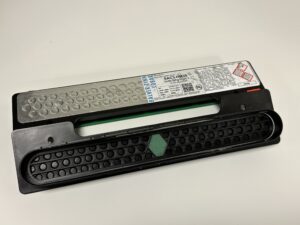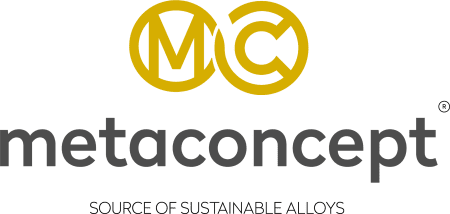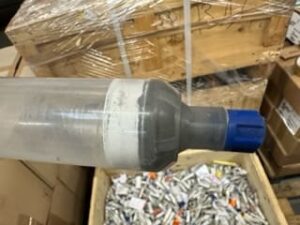Manufacturers make extensive use of tin, tin creams, tin pastes and tin brazing products for soldering various electronic components. As a result, they generate large quantities of waste from these materials. To avoid depleting metal resources, it is entirely possible to recover and recycle these materials. metaconcept buys back, collects, sorts and recycles solder cream waste.
Contact our purchasing and recovery department now for a personalised quote at market prices. Response within 24 hours.
metaconcept, which specialises in complex tin-based waste, has developed an innovative process for separating plastic from solder cream residues (see the product page for our solder creams and pastes). And thanks to this process, we recover the tin and other metals contained in the residues, which we then recycle.
Tin brazing and soldering cream – Waste to be recycled

Cartridge of soldering cream expired – Past date
Tin is widely used in industry to join materials without melting or deforming them. Industrialists use it to braze zinc, copper and other materials with low melting points. Tin brazing is used to assemble copper piping or to make lap joints.
High-tech electronics manufacturers are also major consumers of tin. They use it to solder electronic components. Since 2006, tin solder must no longer contain lead, due to the toxicity of this element. Tin comes in various forms. Tin pastes and solder creams are widely used in the electronics industry for soldering surface-mounted devices (SMDs).
The use of tin in industrial sectors generates a greater or lesser amount of waste. To preserve natural resources and the planet, manufacturers must now choose to recycle the content of solder cream.
Metal resources are running out – why recycle your waste?
Tin, in whatever form, is one of the materials that can be recycled. This means that manufacturers no longer have to dump their tin solder or tin cream waste into the environment. These products can be sorted and recycled.
By recycling your electronic scrap, you are helping to reduce the depletion of natural resources. If the current rate of exploitation does not change, the natural reserve of tin will be exhausted in 2028. As for gold, the reserve of this metal could disappear in 2025. The electronics industry makes massive use of gold because of its inalterability, conductivity and rust-proof properties. In 2011, 320 tonnes of gold were consumed. The world’s copper reserves currently stand at 490 million tonnes. The end of this material is predicted for 2039.
Fortunately, more and more companies are starting to recycle their metal waste, particularly tin. metaconcept buys up and recycles solder cream residues. There are many advantages to using this solution:
- Preservation of natural resources
- Respect for the environment;
- Protecting human health;
- Compliance with applicable regulations on the treatment of metal waste.
Find out more about our non-ferrous metals recovery service.
metaconcept – Expert in the purchase and recovery of tin solder and solder cream residues
metaconcept is an expert in the purchase and recovery of tin solder and solder cream residues. We can recover waste from tradespeople and various industrial sectors, including electronics. Our services involve several stages: collecting tin solder and solder cream waste, sorting it, converting it into secondary raw materials and marketing it.
We buy back various types of tin-based waste, such as those from the electronics industry (production scrap, PCBs, components, etc.), solder cream, tin, etc. Our solder cream residue recycling processes comply with current standards.
With financial recovery of solder cream residues, with very significant environmental gains compared to extracting metals at the mine: 20x less energy used for recycling than for extraction, no environment destroyed by the mine, no children employed for this, and icing on the cake the development of a local sector with a form of circular economy.
For more information, please contact us via our metaconcept recycling department contact form.







